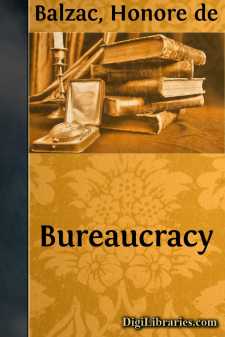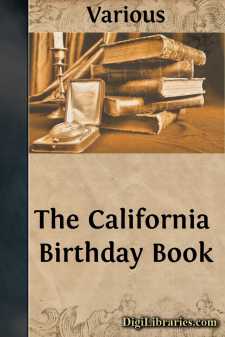Literary Collections
- American 84
- Ancient, Classical & Medieval 14
- Asian 1
- Australian & Oceanian 1
- Canadian 55
- Continental European 121
- English, Irish, Scottish, Welsh 179
- Essays 160
- General 24
- Letters 46
- Middle Eastern 1
Literary Collections Books
Sort by:
by:
Bret Harte
CHAPTER I It must be admitted that the civilizing processes of Rough and Ready were not marked by any of the ameliorating conditions of other improved camps. After the discovery of the famous "Eureka" lead, there was the usual influx of gamblers and saloon-keepers; but that was accepted as a matter of course. But it was thought hard that, after a church was built and a new school erected, it...
more...
by:
Emily Hickey
The beginnings of Literature in England. Two poets of the best period of our old poetry, Caedmon and Cynewulf. The language they wrote in. The monastery at Whitby. The story of Caedmon's gift of song.How many of us I wonder, realise in anything like its full extent the beauty and the glory of our Catholic heritage. Do we think how the Great Mother, the keeper of truth, the guardian of beauty, the...
more...
by:
Charles Cotton
Well, but some one will say to me, this design of making a man's self the subject of his writing, were indeed excusable in rare and famous men, who by their reputation had given others a curiosity to be fully informed of them. It is most true, I confess and know very well, that a mechanic will scarce lift his eyes from his work to look at an ordinary man, whereas a man will forsake his business...
more...
by:
George Gissing
AMONG THE HILLS There were three at the breakfast-table—Mr. Newthorpe, his daughter Annabel, and their visitor (Annabel's Cousin), Miss Paula Tyrrell. It was a small, low, soberly-furnished room, the walls covered with carelessly-hung etchings and water-colours, and with photographs which were doubtless mementoes of travel; dwarf bookcases held overflowings from the library; volumes in disorder,...
more...
by:
Honore de Balzac
CHAPTER I. THE RABOURDIN HOUSEHOLD In Paris, where men of thought and study bear a certain likeness to one another, living as they do in a common centre, you must have met with several resembling Monsieur Rabourdin, whose acquaintance we are about to make at a moment when he is head of a bureau in one of our most important ministries. At this period he was forty years old, with gray hair of so pleasing...
more...
INTRODUCTION THE KINDS OF CRITICISM It is probably unnecessary, and might possibly be impertinent, to renew here at any length the old debate between reviewers as reviewers, and reviewers as authors—the debate whether the reissue of work contributed to periodicals is desirable or not. The plea that half the best prose literature of this century would be inaccessible if the practice had been...
more...
by:
Jane Austen
LETTER the FIRST From ISABEL to LAURA How often, in answer to my repeated intreaties that you would give my Daughter a regular detail of the Misfortunes and Adventures of your Life, have you said "No, my freind never will I comply with your request till I may be no longer in Danger of again experiencing such dreadful ones." Surely that time is now at hand. You are this day 55. If a woman may...
more...
by:
Bret Harte
On October 10, 1856, about four hundred people were camped in Tasajara Valley, California. It could not have been for the prospect, since a more barren, dreary, monotonous, and uninviting landscape never stretched before human eye; it could not have been for convenience or contiguity, as the nearest settlement was thirty miles away; it could not have been for health or salubrity, as the breath of the...
more...
by:
Bret Harte
The Prodigals. "SANDY".. Son of Alexander Morton, sen. JOHN OAKHURST.. His former partner, personating the prodigal son, Sandy. COL. STARBOTTLE.. Alexander Morton, sen.'s, legal adviser. OLD MORTON.. Alexander Morton, sen. DON JOSE.. Father of Jovita Castro. CAPPER.. A detective. CONCHO.. Major-domo of Don Jose's rancho. YORK.. An old friend of Oakhurst. PRITCHARD.. An Australian...
more...
by:
Various
INTRODUCTORY This book, as its title-page states, is made up of selections from the writings of California authors. Most of the selections refer to California—her scenic glories, mountains, valleys, skies, canyons, Yosemites, islands, foothills, plains, deserts, shoreline; her climatic charms, her flora and fauna, her varied population, her marvellous progress, her wonderful achievements, her diverse...
more...








![Love and Freindship [sic]](https://digilibraries-com.s3.eu-central-1.amazonaws.com/covers/81ed8b2a-f211-438d-aa33-5cd3b89d7a26.jpg)


